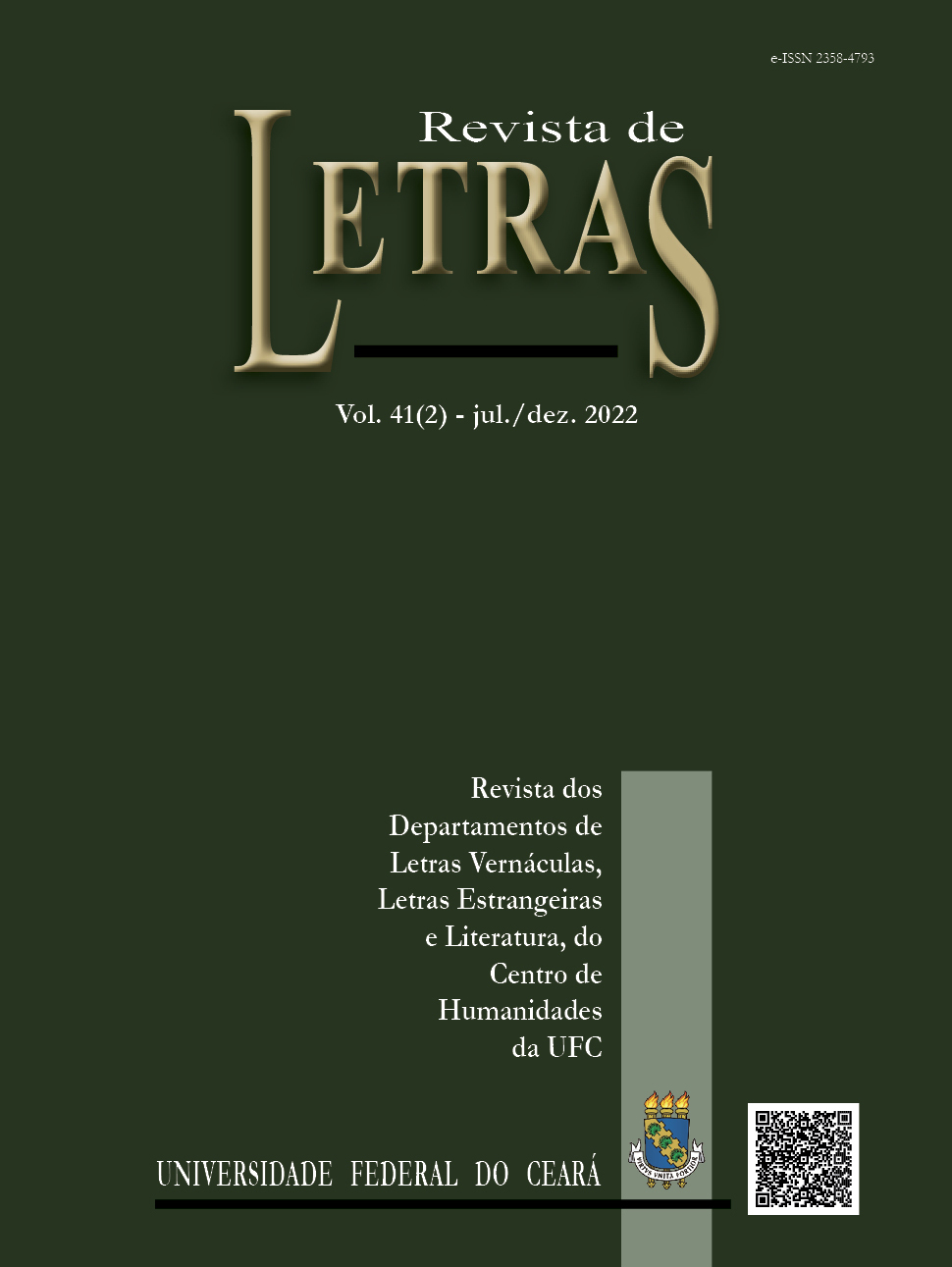PROJETOS DE LETRAMENTO NA OLIMPÍADA DE LÍNGUA PORTUGUESA
O documentário na sala de aula
DOI:
https://doi.org/10.36517/revletras.41.2.5Abstract
Considering the results of evaluations that measure the Basic Education Development Index (IDEB) of students from public schools, revealing that many of them are completing the last cycle of basic education without reaching the desired level of proficiency in Portuguese; also considering the discussions about what and how to teach in the classes of this curricular component, this article aims to discuss the role of literacy projects (KLEIMAN, 2000) in working with the discursive genres of the Brazilian Portuguese Language Olympiad (OLP), in this case, the documentary, a genre inserted in the sixth edition of the OLP, in 2019. Theoretically, this study is fundamentally anchored in the Bakhtinian conception of language and in literacy studies (KLEIMAN, 1995; 2000; SOARES, 2009; SANTOS, 2008; STREET, 2014; OLIVEIRA; TINOCO; SANTOS, 2011). From the methodological point of view, the research was configured as action research, developed in a qualitative and interpretive approach. Sixty-one students from two second-year classes of the New High School at the Alcides Wanderley State School in the city of Carnaubais, Rio Grande do Norte, participated in the research. The results show that reading, writing and rewriting practices during the production of short films enabled the development of multiple literacies. In addition, the work with the documentary genre contributed to the formation of critical thinking, to the development of creativity and agency of the students, in a collaborative and meaningful perspective of learning, capable of motivating students for pedagogical activities and reflection. criticism about what they learned, how they learned it and what they learned in school for what they learned, to better prepare them for the exercise of citizenship and social participation.
Downloads
Downloads
Published
How to Cite
Issue
Section
License
Autores que publicam nesta revista concordam com os seguintes termos:- Autores mantêm os direitos autorais e concedem à revista o direito de primeira publicação, com o trabalho simultaneamente licenciado sob a Licença Creative Commons Attribution que permite o compartilhamento do trabalho com reconhecimento da autoria e publicação inicial nesta revista.
- Autores têm autorização para assumir contratos adicionais separadamente, para distribuição não-exclusiva da versão do trabalho publicada nesta revista (ex.: publicar em repositório institucional ou como capítulo de livro), com reconhecimento de autoria e publicação inicial nesta revista.
- Autores têm permissão e são estimulados a publicar e distribuir seu trabalho online (ex.: em repositórios institucionais ou na sua página pessoal) a qualquer ponto antes ou durante o processo editorial, já que isso pode gerar alterações produtivas, bem como aumentar o impacto e a citação do trabalho publicado (Veja O Efeito do Acesso Livre).

.png)





.png)
